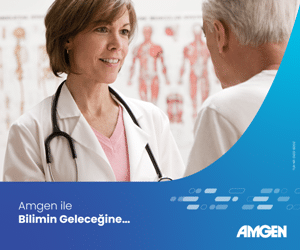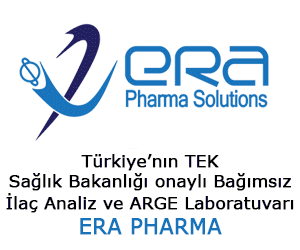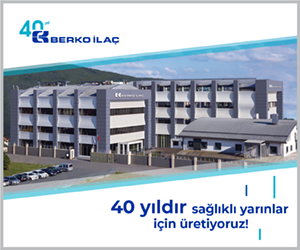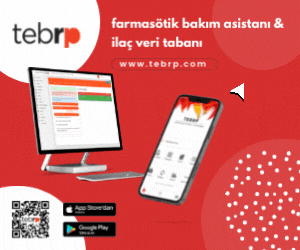Launched with great promise in a climate of escalating drug costs, biosimilars have generated as many questions as answers for more than a decade. As they now start competing with monoclonal antibody (MAb) biologics in key indications for cancer, the uncertainty for originator manufacturers grows. Why does biosimilar adoption vary, even with significant discounts? What factors beyond price are encouraging or deterring biosimilar usage? And how do these factors affect the ultimate choice of a biologic vs biosimilar?
Who’s influencing whom?
Experience to date underscores the growing complexity of a more crowded and competitive biologics market, with multiple stakeholders reaching out to shape the role of biosimilars. Those stakeholders include payers, purchasers, HTA bodies and insurers, as well as hospital administrators, hospital pharmacists, patient advocacy groups and professional organisations. Each is contributing to an array of policies, recommendations, guidelines and initiatives that influence the use of these lower-priced treatment options. Variable by country and now including mechanisms such as prescribing/utilisation quotas, gainshare agreements and government generation of clinical evidence, it is more challenging than ever to understand brand impact.
While these external influences on biosimilar uptake are becoming increasingly important, the final decision still resides with physicians – key opinion leaders in the world of biosimilars. Situated at the front line of care delivery, doctors are rated by patients as the most significant influence on both the choice and discontinuation of treatment. As such, their attitudes regarding MAb biosimilars are critical considerations for understanding the likely adoption of these products in cancer care. No longer just clinicians, physicians are more accountable than ever for their healthcare expenditures, and they are under increasing pressure to meet financial targets.
In this context, how do physicians view biosimilars compared to biologics? And what drives their preference for one over the other?
What are physicians thinking?
To answer these questions, SKIM surveyed physician key opinion leaders (KOLs) working in oncology and haematology across leading EU markets. Survey discussions were designed to explore their perceptions and intentions regarding future use of MAb biosimilars. The results revealed consistent attitudes regarding several key issues that affect prescribing behaviour. They include:
- Cost is a key driver but safety comes first: lower price is a primary reason to use biosimilars, which “are constantly on our minds to save money.” (UK) However, safety comes first. “What do I need to start (using) biosimilars? Information on safety and side-effects.” (Germany) “I have long-term safety concerns. Herceptin has been around for 12–13 years. Biosimilars are new drugs; we don’t have the same data for them. It makes me more doubting.” (UK)
- Evidence of bioequivalence is a concern: Physicians seek more robust clinical data showing equivalent efficacy to the originator product before considering use. “Non-inferior clinical studies to prove you provide the optimal treatment.” (UK) “They need to prove it within patients.” (France) “Biosimilars are not the same; clinical trials will give me more confidence to prescribe.” (Germany)
- Curious but cautious: While receptive to the (economic) opportunities biosimilars present, physicians temper their interest with caution. “I am open to the new possibilities, but cautious. I need more information about these products. I am working in a high-risk environment for patients and myself.” (Germany)
- Provenance and product availability matter: Even with proven safety and efficacy, the origins of some biosimilars raise questions. Many companies (eg, from Asia) are unknown, and uncertainties around delivery capabilities and safety legislation creates trust issues. “Some companies avoid EU safety regulations and buy biosimilars through a third company from China, so we would get these products via the back door with low quality levels. That is a concern.” (Germany) “You want to know there are no issues with supplies. Do I trust those companies to the same extent? I don’t know.” (UK)
- Gradual conversion starting with new patients: Given the lack of experience with biosimilars in oncology, physicians anticipate a gradual transition starting with new patients and preferentially avoiding switching those already on biologics. “I would be concerned about existing patients switching – patients treated for a long time on one preparation – that we would trigger an immune reaction.” (Germany) “It would be more difficult to switch existing patients than new patients.” (UK)
Despite their doubts and a stated preference for the trusted originator biologics, physicians recognize that biosimilars are part of the future and their use “will not be a single decision”. They are considered likely to gain significant market share with endorsement from national bodies such as the UK’s NICE, HAS in France and Italy’s AIFA, as well as influential independent organisations such as ESMO, which recently published a paper supporting biosimilars as an option for sustainable cancer treatment.
What do physicians expect from biologics originators?
In this newly competitive environment, physicians anticipate a range of defence strategies from biologics originators. But which strategies could convince them to continue their use of the reference molecule? Feedback suggests originators should:
- Innovate with new modes of administration and/or indications that improve the original brands. “Originators should start innovating to bring new indications of the molecule. Maybe the trouble is that they have the authorisation in an organ so that brings restrictive ways to prescribe their molecule. If they enhance the indication by building trials in other indications, perhaps it could help for prescribing the original molecule more.” (France)
- Educate and utilise counter-messaging to reinforce trust by emphasising the superior long-term safety and efficacy of biologics, more robust data, reliability in terms of availability and country of manufacture, and longstanding expertise in this field. “Trust and safety are super important. Who has introduced the new biosimilar and where are very important in the consideration.” (Germany) “Psychologically it does [make a difference]. We are human, so we can be influenced by this.” (UK)
- Address unmet patient needs based on knowledge of their treatment journey. “The patient and clinician are more directly involved in treatment. Offer the opportunity to guide physicians more. Counteract side effects with better assistance. The fact that you will somehow get closer involvement of the manufacturer when it comes to the patient journey. Originator manufacturers are involved more and more in the patient journey and starting a service role.” (UK)
- Keep innovating and build a portfolio to strengthen trust among physicians by demonstrating a long-term commitment to move treatment forward. “Certainly the credibility of the pipeline relates to the perceived willingness of the company to develop more and invest in the development of better medication. This adds value and trust in the company.” (UK)
Succeed with the right focus
Staying competitive in a market where MAb biosimilars will inevitably find their place requires understanding what drives their use and a focus on the potential to influence and change behaviours. Opportunities should be met with an informed strategy based on an accurate perspective of the future market and optimal brand positioning within it.




















